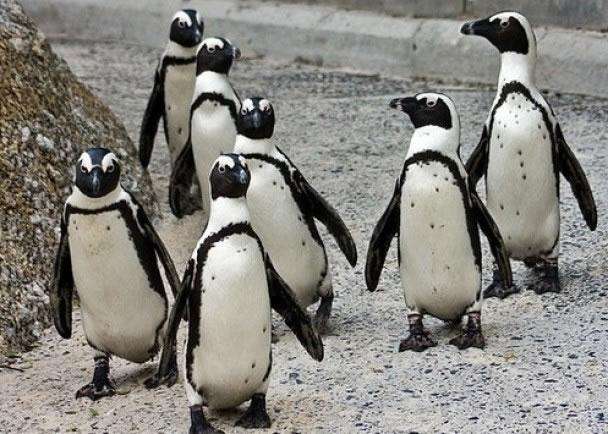This is Scientific American — 60-Second Science. I'm Jason Goldman.
Over millions of years, penguins have evolved a keen sense of where to find food. Once they're old enough, they set off from the shores on which they hatched for the first time and swim long distances in search of tasty fish like anchovies and sardines. But they don't search directly for the fish themselves.
For example, when young endangered African penguins head out to sea, they look for areas with low surface temperatures and high chlorophyll. Because those conditions signal the presence of phytoplankton. And lots of phytoplankton means lots of zooplankton, which in turn means lots of their favorite fish. Well, that's what it used to mean.
Climate change plus overfishing have made the penguin feeding grounds a mirage. The habitat is indeed plankton-rich—but now it's fish-poor. Researchers call this kind of scenario an "ecological trap."
"It's a situation where you have a signal that previously pointed an animal towards good quality habitat. That habitat's been changed, usually by rapidly induced human pressures, usually anthropogenic change—and the signal stays, but the underlying quality in the environment deteriorates."

University of Exeter zoologist Richard Sherley. He and his team used satellite imaging to track the dispersal of 54 recently fledged African penguins from eight sites along southern Africa. Historically, the birds benefitted from tons of fish off the coasts of Angola, Namibia and western South Africa, but now they're going hungry.
"I was really hoping we'd see them going east, and finding areas where the fish had shifted to...so I was quite surprised to be wrong, and unfortunately quite sad to be wrong in this case. It ends up being quite a sad story for the penguins."
The researchers calculate that by falling into this ecological trap, African penguin populations on South Africa's Western Cape have declined by around 80 percent. The findings are in the journal Current Biology.
Some research groups are exploring the idea of translocating chicks to a place where they can't get trapped, like the Eastern Cape. But Sherley thinks that a longer-term solution means implementing regulations to create more sustainable fisheries, something that he says has public support.
And as for the penguins?
"There's not necessarily yet in an extinction vortex. So it's not hopeless yet."
But time flies. Unlike penguins.
Thanks for listening for Scientific American — 60-Second Science Science. I'm Jason Goldman.












